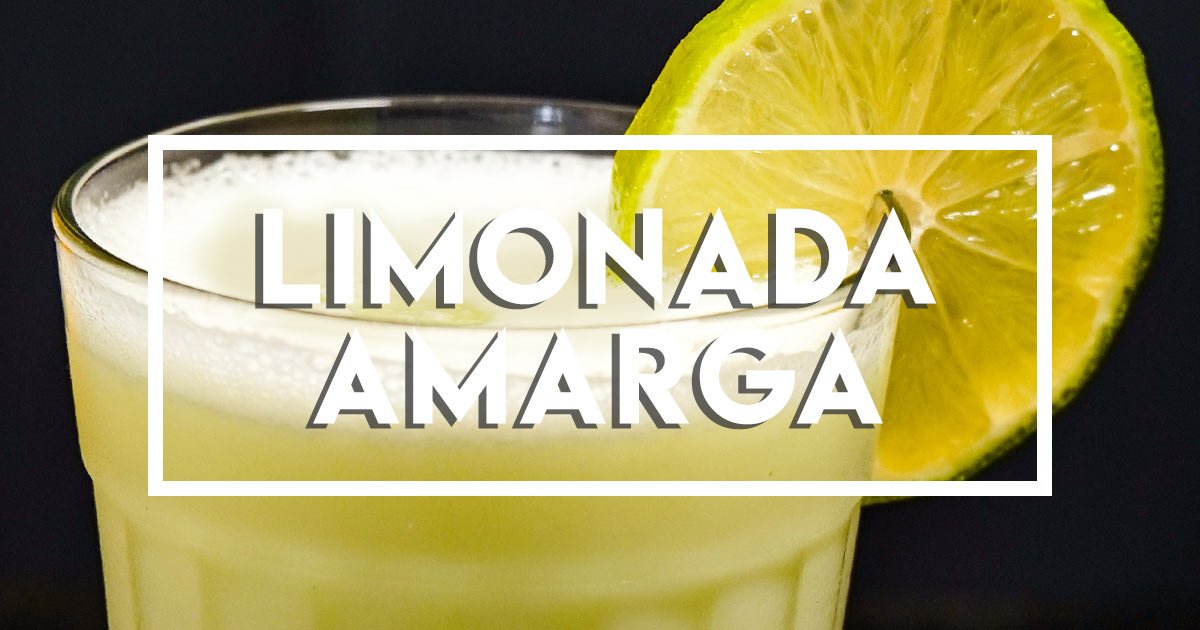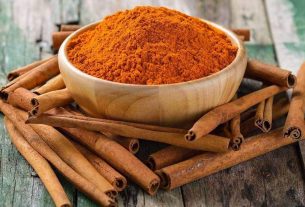Have you ever made that incredible and delicious Swiss (or even regular) lemonade… but after a while it became pure bitter, right? Do you know why this is?
Lemon composition
Within the chemical composition of the lemon (that is, it is part of the lemon) there are already substances that will make the drink bitter. In this case, it is the group of compounds called limonoides the main ones being: lemon (the limonoate precursor A-ring lactone), driven e nomilinic acid. There are more than fifty substances already identified belonging to the group.
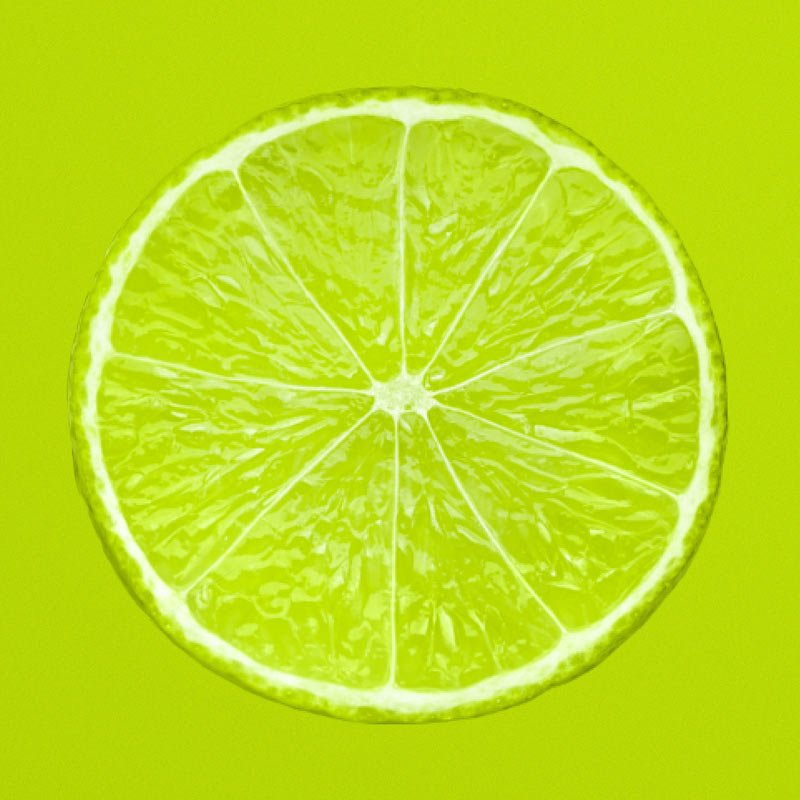

There are other compounds that contribute to the bitter taste, such as flavonoids. In citrus fruits, there is flavanone group that within it we can highlight the silenced who is responsible for bitterness in grapefruit (grapefruit, Citrus × paradisi).
Lemon is sour and not bitter
If you bite into a lemon you will feel the sour taste and practically nothing of the bitter taste, right? In the plant tissue of the fruit, they are in the shape glycosylated (or glycoside). That is, the limonin molecule (for example) is linked to a glucose molecule and when it’s like this it doesn’t taste like anything.
And in the case of lemonshe’s in her shape unevolved also: the precursor A-ring-lactone limonoate (read as a substance that turns into limonine) that doesn’t taste like anything.
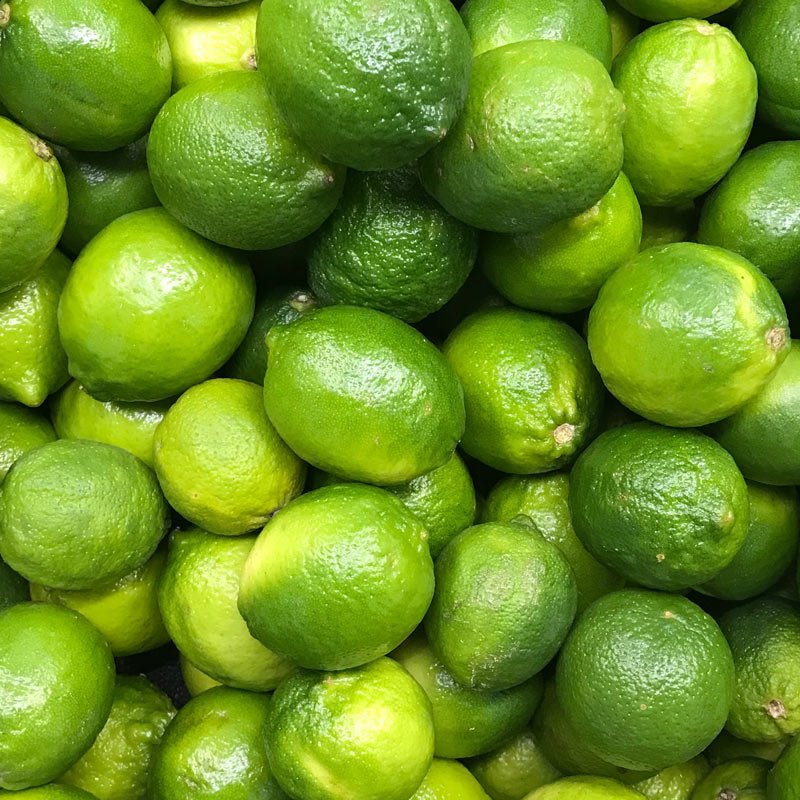

How does lemonade get bitter?
When you make lemonade, the tissue of the lemon has been damaged and a series of reactions begin to happen. O limonate precursor begins to turn into limonin and – to make matters worse – the reaction is accelerated under acidic conditions (low pH). And lemon juice is very acidic.
Furthermore, this transformation is accelerated by the enzyme limonoide D-anel-lactona hidrolase (there are references to the enzyme limonin D-anel-lactone hydrolase) and by heat (This enzyme is heat resistant). And the bitter taste is so intense that overlaps the sour taste that lemon generally has.
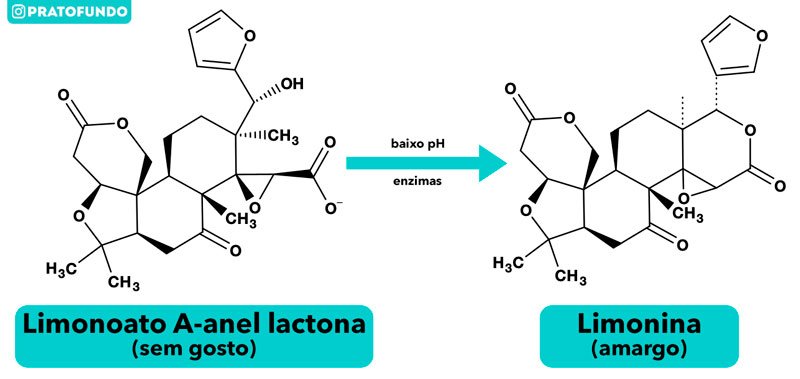

Another factor that may contribute: remember glycosylated? Limonin binds to glucose, which is generally very stable. When making juice, limonin can lose glucose due to the action of another enzyme, limonoid glycoside beta-glucosidase. This enzyme is present in citrus seeds, so if you blend everything together it is also released.
Speaking of seeds, they generally contain bitter compounds as well. That’s why when you bite into a seed, whether lemon or orange, you feel the bitter taste.
Is there a way to “take” the bitterness out of lemonade?
Technically, yes and no. Yes, if you are in a laboratory with bitter removal techniques (enzymes, dilution and so on). No, if you are at home.
As I explained, the cause of the bitterness is part of the lemon. So, all the tips that claim to be infallible for removing bitterness don’t work very well. Citrus juice, in general, it will eventually turn bitter. And of course, depending on the fruit: some more and others less.
Can I reduce the bitterness in citrus fruits?
Yes! What can help is to remove the skin of the fruit, green and white parts and seeds, use ice water and beat as little as possible. And whenever possible, use ripe fruits. Fruits that are not yet ripe tend to be bitter. And, of course, drink the juice as soon as possible.
However, depending on the preparation, its practicality may be lost. As is the case with Swiss lemonade or a cake that uses the whole fruit, the great thing about it was mixing everything together.
You help keep the website and videos up and running and we have really cool rewards, come find out how!
Bibliography
- COELHO, Y. da S. et al. Tahiti lemon culture. Plantar Collection. Red Series. Fruit trees. Embrapa1998.
- IZAWA, Kunisuke et al. Human–Environment Interactions: Taste. Comprehensive Natural Products II2010.
- MANNERS, G. D. Citrus Limonoids: Analysis, Bioactivity, and Biomedical Prospects. Journal of Agricultural and Food Chemistry55(21), 2007.
- MATHEYAMBATH, AC; PADMANABHAN, P.; PALIYATH, G. Citrus Fruits. Encyclopedia of Food and Health2016.
- MONGKOLKUL, P.; RODART, P.; PIPATTHITIKORN, T.; MEKSUT, L.; SA-NGUANDEKUL, R. Debittering of Tangerine Citrus Reticulata Blanco Juice by β-Cyclodextrin Polymer. Journal of Inclusion Phenomena and Macrocyclic Chemistry56(1-2), 2006.
- HASEGAWA, Shin. Biochemistry of Limonoids in Citrus. Citrus Limonoids9–30, 2000.
- HASEGAWA, Shin. Limonin Bitterness in Citrus Juices. In: Teranishi, R., Wick, E.L., Hornstein, I. (eds) Flavor Chemistry. Springer, Boston, MA, 1999.
- HASEGAWA, S.; BERHOW, M. A.; FONG, C. H. Analysis of Bitter Principles in Citrus. Modern Methods of Plant Analysis1996.
- PUREWAL, S. S.; SANDHU, K. S. Debittering of citrus juice by different processing methods: A novel approach for food industry and agro-industrial sector. Science of Horticulturev. 276, p. 109750, 2021.

Sign up for our newsletter and stay up to date with exclusive news
that can transform your routine!
Warning: Undefined array key "title" in /home/storelat/public_html/wp-content/plugins/link-whisper-premium/templates/frontend/related-posts.php on line 12
Warning: Undefined array key "title_tag" in /home/storelat/public_html/wp-content/plugins/link-whisper-premium/templates/frontend/related-posts.php on line 13

